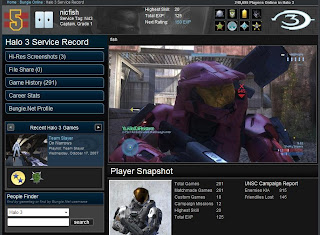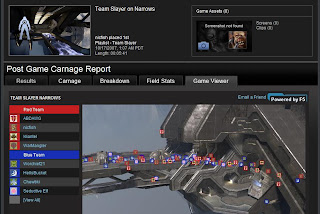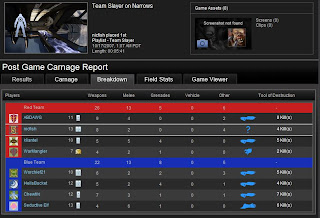To illustrate the point I have an example that was forwarded to me by one of my gamer friends. The example is from the recently released xbox video game Halo 3. Gamers can log onto the Bungie.com website, (these are the guys that make Halo) and see personal information about their Halo 3 game play. Detailed information on each individual game is provided including things like who died the most, who had the most kills, which weapons were most effective. All of this information that gets stored on the gamers own personal xbox live account and is served up to them through an online dashboard via the Bungie website. As gamers play online against each other they can track their performance and work their way through various levels of achievement, a type of Halo performance management if you will.
This example demonstrates many of the same concepts we see in the business world, as this is essentially a dashboard serving up particular user specific information that you can monitor and do deeper analysis to ultimately improve your own game play. This type of analysis leverages BI technology but in a very different way that impacts the overall experience of a game. Check out Bungie’s website, http://www.bungie.net/stats/default.aspx and put the name: nicfish into the people finder to see an example.



No comments:
Post a Comment